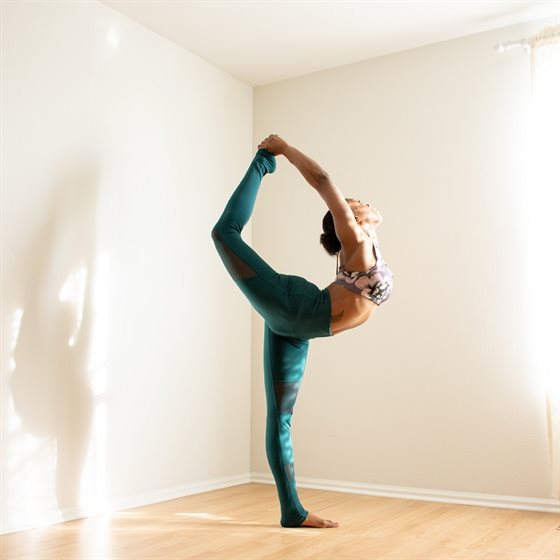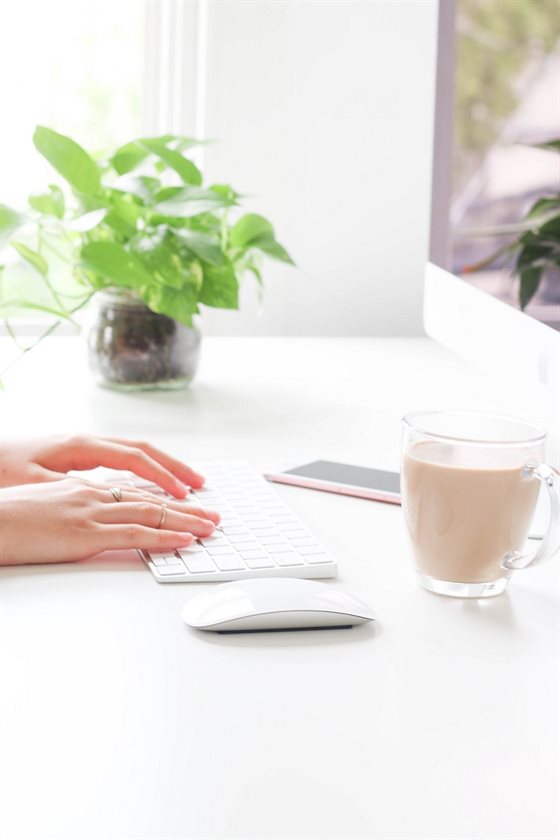It’s like nothing we’ve ever seen before in peacetime – a nationwide instruction to stay in our homes for at least three weeks.
Even if you love being around your home, a social shift as big as this is going to be a genuine challenge for everybody.
But there are ways you can keep yourself healthy and happy and some of these things might even be lifelong changes for good.
1. Stay calm yet cautious
This might seem obvious but staying calm during these unprecedented times is crucial to your mental wellbeing. While it is important to know what’s going on, it’s also important that you don’t overwhelm yourself with information.
Avoid speculation and stick to reputable news sources. Don’t believe everything you read on social media – if it isn’t being reported by the likes of the BBC or isn’t on the official Government website, take it with a pinch of salt.
Stay informed but limit your news intake to find a balance that suits you. Perhaps set two or three regular times throughout the day to check the news and then switch off in between.
Try breathing techniques to stay calm – in for four counts/out for four counts. Make yourself as comfortable as you can and take a deep breath in through your nose and exhale out through your mouth. This will help you feel more in control of your body.
Give meditation and yoga a go – there’s lots of free resources online and these practices can help relieve stress and reduce muscle tension. 
(Photo by Madison Lavern on Unsplash)
2. Be kind
Nothing new here – being kind always goes a long way.
Connect with and support each other in any way you can. Talking and listening makes a big difference and you’ll be surprised by how many people are feeling the same way when you open up.
Random acts of kindness or generosity can mean the world. If you’re able to, let your vulnerable relatives or neighbours know you can help with dropping off their groceries or prescriptions. Or maybe just share a positive thought with loved ones and let them know you’re thinking of them.
3. Actively manage your wellbeing
Staying fit and well during this time may seem obvious but it’s easy to see how bad habits could creep in while working from home (let’s be honest, we all like a biscuit with our brew). Keeping on top of your physical health and looking after your body is proven to help achieve a positive mindset.
Eat as well as you can and stay hydrated. Try and get your five-a-day and maybe set an alarm to remind you to drink water at frequent points in the day.
With the latest lockdown measures in place, use your opportunity to leave the house once a day to exercise - whether it’s going on a walk, jog or bike ride, or doing a workout in the garden. Just remember to adhere to social distancing guidance.
If you’re not able to get outside once a day, why not sign up for online classes? There are lots of instructors hosting live workouts for free on social media. If you notice you’ve been sitting for an hour, get up and have a wander around the home.
Take time out to practice self-care – indulge in a bubble bath, light a candle, read a book, listen to music, watch a TV show or film.
Try and get as much sunlight, nature and fresh air as you can. Open windows, have flowers or house plants in your home and position your workspace near to natural light. 
(Photo by Jacqueline Kelly on Unsplash)
4. Coping with social distancing
Up until a few weeks ago, the term ‘social distancing’ was not something many of us were overly familiar with. We’ve quickly had to learn what it means and how it works - and that in itself can be overwhelming.
But being apart from friends and family doesn’t mean losing touch. We’re lucky enough to live in a world where we can easily stay connected with loved ones through video calls, social media, telephone and email. Pencil in a daily catch-up where you can have a cuppa together (albeit virtually).
Keep to a daily routine. When you’ve got nowhere to go, there is a real temptation to sleep in, not get dressed and waste the day without realising. To avoid this, try and get up at the same time each day, put some form of structure in place (e.g. daily catch ups, mealtimes, exercise breaks), and go to bed at your usual time.
This could also be a good opportunity to improve your daily habits. You could spend more time cooking or reading or try and get into a habit of going to bed earlier or increasing the amount of exercise you do.
5. Overcoming loneliness
We’re social creatures, us humans, so it’s bound to feel strange not being able to meet up with friends and family. Being apart from work colleagues can feel alien too. However, thanks to technology, you are never really alone.
Find a friend or group of friends to set daily challenges with/share things you’re grateful for each day.
Set dates/times to watch the same TV shows/films and message each other your thoughts along the way. Or maybe start your own weekly book club?
Share your exercise routine with your gym buddy via video call – it'll be like you never left the gym!
Join a local social media group to stay connected with what’s going on around you. Most communities have dedicated Facebook groups for exactly this reason.
Listen to a radio station or podcast if your home feels too quiet. Just hearing someone’s voice can make the world of difference if you’ve been feeling lonely.
Put extra photos up around the house to remind you of the people in your life. Dig out the old photo albums and stick up your favourite pics that bring a smile to your face.

(Photo by João Silas on Unsplash)
6. Make the most of having more time to yourself
“There’s just not enough hours in the day!” It’s always the same when you’ve got a million and one jobs that need doing – there simply isn’t enough time, right?
Well, now there is! Don’t feel guilty about having spare time on your hands – we're all in the same boat. Instead, be productive and write a list of the things you’ve been meaning to do for weeks/months/years.
Have a sort through your things and clear out anything you no longer need or want. Look at charities that you could donate these to, or perhaps list your items online selling sites – just bear in mind that you may need to delay delivery dates until you can leave the house to send out parcels.
Get your digital space tidied up. Clear out any old files and apps you don’t use, sift through your inbox, upgrade your software and update passwords.
Carry out those pesky admin tasks that you’ve been putting off – e.g. changing your energy provider, updating your address book, clearing out receipts.
Take care of any odd jobs and DIY that you’ve not had time to do.
Stay up to date with all the latest information from DMU about COVID-19 here: www.dmu.ac.uk/coronavirus
Posted on Tuesday 24 March 2020